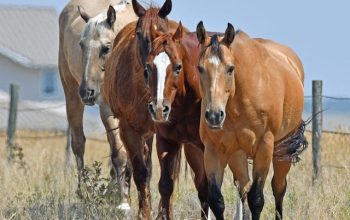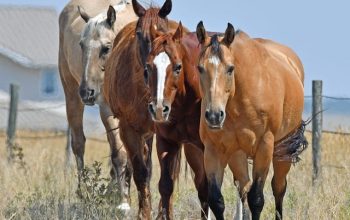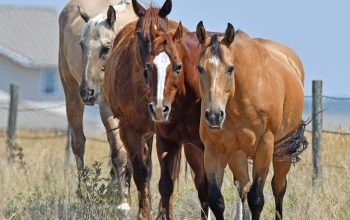When choosing a fence for large farms, consider terrain variations, animal containment, security, and aesthetics. Durable materials like high-quality steel or aluminum ensure longevity against harsh weather and theft. Installation techniques such as post-and-rail or electric fencing cater to unique property needs and livestock management. Regular maintenance, including inspections and cleaning, is vital for fence integrity and farm boundaries.
“Maximize the security and longevity of your large property with durable fencing farm solutions. In this comprehensive guide, we explore the essential elements of farm fencing, from understanding unique needs to selecting robust materials. Discover effective installation techniques that ensure strong boundaries and learn proven maintenance tips for long-term investment. Enhance your farm’s protection and aesthetics with the right fence for farms – navigate our expert insights for optimal results.”
- Understanding Farm Fencing Needs: Factors to Consider for Large Properties
- Types of Durable Fencing Materials for Maximum Longevity and Security
- Installation Techniques for Strong and Efficient Farm Boundaries
- Maintenance Tips to Keep Your Farm Fence in Top Condition: A Long-Term Investment
Understanding Farm Fencing Needs: Factors to Consider for Large Properties
When considering a fence for farms, especially for large properties, understanding specific needs and factors is paramount. These include terrain variations, animal containment requirements, security considerations, and aesthetic preferences. Farmland can range from rolling hills to vast plains, each presenting unique challenges for fence installation. For instance, fences in hilly areas need to be sturdy enough to withstand sloped ground, while those in open fields should offer maximum visibility for livestock monitoring.
Additionally, the type of animals on the farm greatly influences fencing choices. Fences designed for cattle or sheep differ from those for horses or poultry, with variations in height, spacing, and materials. Security is another vital aspect; a robust fence protects livestock from predators and keeps out unwanted visitors, ensuring the safety and well-being of both animals and property. Moreover, choosing fences that blend seamlessly into the natural landscape enhances the overall beauty of the farm, aligning with current trends in sustainable farming practices.
Types of Durable Fencing Materials for Maximum Longevity and Security
When it comes to securing large farm properties, choosing the right fencing material is paramount. Durable fencing solutions not only protect your land from intruders but also withstand harsh weather conditions and intense use. For maximum longevity and security, consider high-quality steel or aluminum fences. Steel, known for its strength and resilience, offers excellent protection against damage and theft. It can be galvanised to prevent rusting, ensuring it remains robust for years.
Aluminum fences, lighter in weight but equally sturdy, are another excellent option. They are corrosion-resistant, making them ideal for areas prone to moisture or salt air. Both materials provide clear visibility, allowing you to monitor your farm effectively while keeping out unwanted visitors. Additionally, they can be custom-designed to fit unique property lines and landscapes, ensuring both functionality and aesthetic appeal for your farm.
Installation Techniques for Strong and Efficient Farm Boundaries
The installation techniques for durable farm fencing play a pivotal role in establishing efficient boundaries on large properties. One proven method is post-and-rail fence construction, where sturdy posts are securely driven into the ground and connected by rails, creating a robust barrier that can withstand harsh weather conditions and heavy livestock. This technique not only provides strength but also allows for flexibility in height adjustments to cater to different areas of the farm.
Additionally, modern farm fencing solutions often incorporate advanced technologies like electric fencing systems. These systems involve strategically placed insulators and wires, offering a safe yet effective deterrent for animals. Electric fences can be easily installed alongside traditional fence structures or as standalone boundaries, providing farmers with versatile options to manage their livestock effectively while maintaining the integrity of their property lines.
Maintenance Tips to Keep Your Farm Fence in Top Condition: A Long-Term Investment
Maintaining a farm fence is an essential part of ensuring your property remains secure and well-defined, especially in rural or expansive agricultural settings. Regular upkeep can extend the lifespan of your fence, making it a long-term investment for your farm. Here are some tips to keep your farm fence in top condition:
Start by inspecting the fence regularly, looking out for any signs of damage, rot, or weak posts. Promptly repairing small issues can prevent them from becoming major problems. Keep an eye out for loose or missing boards, and replace them as needed. Additionally, trim back any overhanging branches or vegetation that could cause damage or obstruct visibility. Regular cleaning is also crucial; removing debris, dirt, and buildup ensures the fence remains effective and aesthetically pleasing.
When it comes to securing large farm properties, investing in durable fencing solutions is a key decision. By understanding your specific needs, choosing the right materials, and implementing efficient installation techniques, you can ensure a robust and long-lasting barrier. Regular maintenance will further strengthen this investment, safeguarding your land for years to come. With the right approach, a quality fence becomes an integral part of sustainable farm management, offering both security and peace of mind. Remember, a well-maintained fence is a valuable asset in any farm’s landscape.




